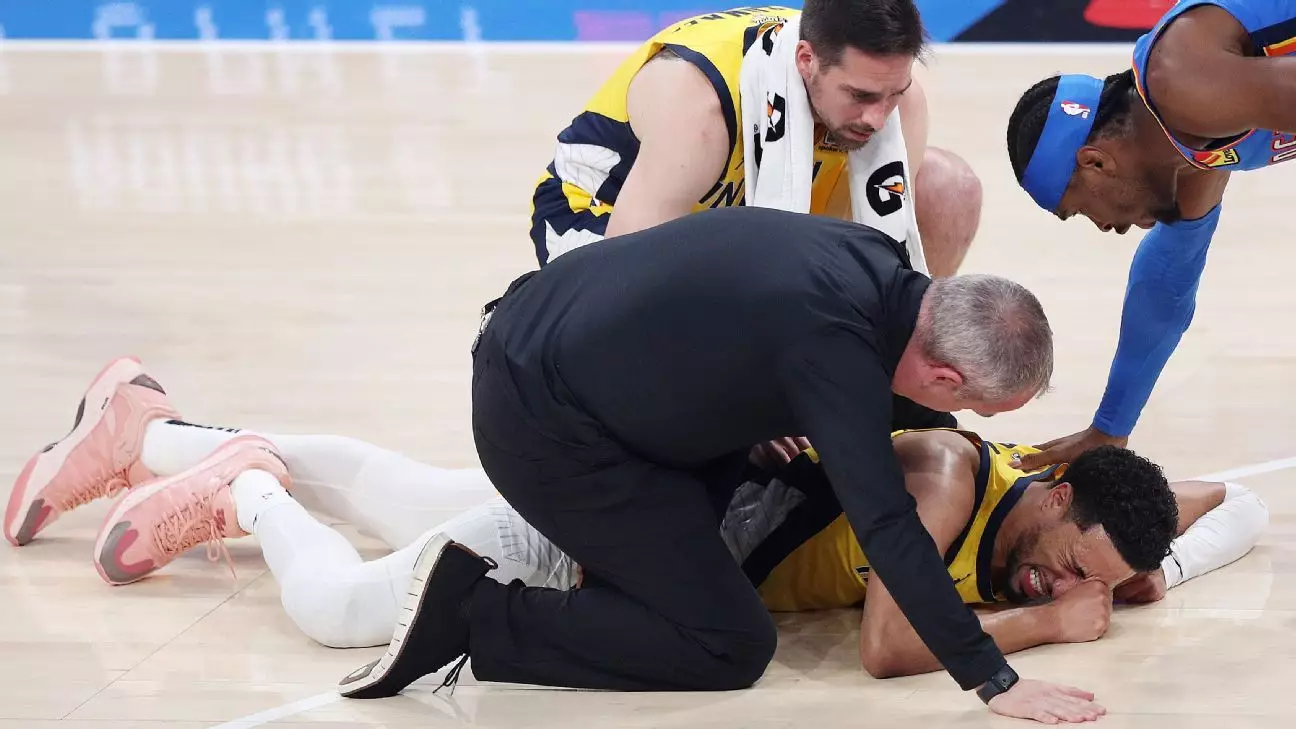The Indiana Pacers were on the brink of something special, riding high on the shoulders of their star, Tyrese Haliburton. That was until the moment he crumpled to the floor during Game 7 of the NBA Finals. This wasn’t just an ordinary sports injury; it was a crushing blow to the dreams of a franchise and its passionate fanbase. Haliburton’s torn Achilles tendon is not simply a statistic or a protocol that will keep him off the court for the upcoming season. It embodies a heartbreaking reality for a player who dared to push through pain in pursuit of greatness.
In the competitive arena of professional basketball, the sheer will to play through injury is celebrated. Yet, this narrative is often romanticized to the point of glorification, placing undue pressure on athletes like Haliburton. Instead of prioritizing his long-term health, Haliburton insisted he could “play through” a calf strain that wasn’t just a minor hiccup but a precursor to a devastating injury. Aren’t we, as spectators, partly responsible for this culture of machismo that glorifies playing hurt? It’s ironic that the very qualities that make an athlete admired can lead to their downfall.
A Star Shines Bright, Then Dimmed
The unfortunate reality is that Haliburton was not just a pivotal player for the Pacers; he was a beacon of hope. At just 25, he was not only leading his team to unprecedented playoff success but also setting a high bar for individual performances. A record 197 assists in a single postseason and clutch shots that made history—he was poised to be a future superstar. Thus, to witness his journey cut so brutally short raises questions about the fragility of sports ambition.
Despite his physical prowess and technical skill, Haliburton’s Achilles injury serves as a stark reminder of how quickly fortunes can shift in professional sports. While the Pacers left the court in despair, applauding his presence in the locker room, the reality sunk in: the loss was not just on the scoreboard; it was a personal, emotional loss that resonated far beyond that night. Coach Rick Carlisle’s words—“All of our hearts dropped”—tell a tale of collective devastation, underscoring that this injury is felt deeply within the team’s soul.
Pondering the Future: More Than Just Recovery
Following surgery, Haliburton’s journey ahead will involve rehabilitation, hope, and determination. Yet, as a society enmeshed in sports culture, we must ask ourselves difficult questions. Will we allow him the space to recover, or will we impatiently demand his return? Will we continue to celebrate the myth of the invincible athlete, or will we start to grasp the reality of vulnerability?
The narrative surrounding injuries often overlooks the mental and emotional toll they take on players. Haliburton’s story is one of resilience, but it should also initiate a conversation about the ethics of sports injury management. Athletes should feel empowered to prioritize their health without the looming fear of public scrutiny. As Haliburton recuperates, he might embody more than just a remarkable player—he could be a catalyst for change in how we view strength and vulnerability in sports.

Leave a Reply